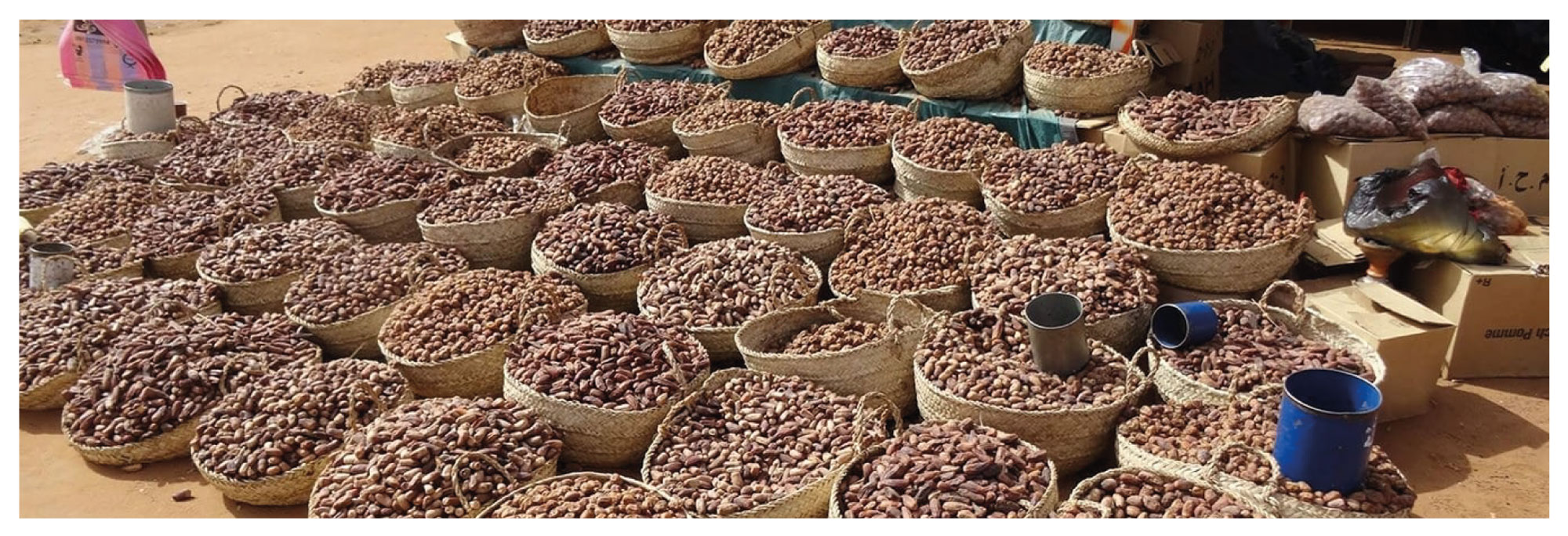
02 Nov Agribusiness in Eastern Sudan
A region affected by conflict and mass displacement, Eastern Sudan faces a number of challenges: high levels of poverty, a large refugee population, and a climate that alternates between severe flooding and recurrent drought (to name only a few). The economy is predominantly agricultural – however, there are significant obstacles to accessing income-generating opportunities in agribusiness, particularly for more marginalized groups.
Baseline Study of Agribusiness in Eastern Sudan
The Regional Development and Protection Programme (RDPP) for the Horn of Africa is an EU-funded concerted action to address the root causes of displacement in conflict-affected areas that are also migratory routes – and, in doing so, protect refugees and migrants, and support their host communities. An Agribusiness in Eastern Sudan component (AB-RDPP), implemented by the Netherlands Enterprise Agency (RVO), aims to contribute to livelihood enhancement in the region and lower the risks for entrepreneurs to invest in, and engage with, new agricultural economic activities.
Sayara International collaborated with the RVO to conduct a baseline study of agribusiness in Eastern Sudan. The initiative focuses on the challenges for starting or expanding businesses, low productivity of agriculture, and obstacles for other disadvantaged groups such as women, youth, and internally displaced persons (IDPs) to participate in economic and income-generating activities. Currently, the overwhelming majority of small-scale farmers in Eastern Sudan engage in subsistence agriculture, and only a small number produce a surplus to sell at markets. Most agricultural activities take place at the local level and are primarily dependent on networks of family members and neighbors.
Income-Generation Opportunities and Obstacles
A central problem that this research aimed to address was the absence of concrete government plans at the state and local levels to encourage business development in Eastern Sudan, coupled with the allocation of the majority of resources in and around Khartoum, to the detriment of other populations. Sudanese enterprises (of any sort) find themselves in an unfavourable position since they are charged national taxes while foreign businesses enjoy subsidies from their own governments. Even prior to this study, concerns were noted about both the ineffective coordination between different actors that mismatch the needs of communities, and government and international policies that create an environment of dependency rather than self-reliance for these farmers. This all hinders further opportunities for agribusiness and negatively impacts the residents of Eastern Sudan.
Therefore, the Agribusiness in Eastern Sudan program strives to enhance income-generating opportunities for refugees and the host communities in Kassala and Gedaref, both of which are border states defined largely by the social, political, and economic factors born out of their particular ethnic makeup and geopolitical environment.
The program aims to achieve this goal by strengthening the region’s business environment with networks and platforms for agribusinesses, the facilitation of entrepreneurial activities, and support for the increased participation of disadvantaged groups in economic activities. In order to highlight demographic factors that may impact implementation, the study examined refugee, migrant, and host community households living in Kassala and Gedaref – as well as other disadvantaged groups, including women, youth, and IDPs. The study explored the particular obstacles that refugees and women face in accessing entrepreneurial and livelihood opportunities.
Methodology
Sayara’s experienced team employed a mixed-method approach towards the study, utilising an iterative desk review, focus group discussions, and key informant interviews with key stakeholders – including government officials, representatives of agricultural associations and international NGOs, community leaders, farmers, refugees, and women. This provided a baseline overview of existing livelihoods and income-generating activities in Eastern Sudan, while allowing our experts to propose a revised Theory of Change to the Sudan chapter of the RDPP.
The findings of this research will assist in tailoring and informing policies and programmes, and offer an opportunity to advance entry points for enhance income-generating opportunities through agriculture in Eastern Sudan. Our researchers highlighted an increased need to address some of the most discouraging factors limiting agricultural entrepreneurship in the region, such as governmental policy and regulations, a lack of accessible financial services, limited transportation networks, and lack of access to relevant knowledge.
Learn More
To learn more about our work in Sudan and the Horn of Africa, get in touch with our team. For more information on the Agribusiness in Eastern Sudan Regional Development and Protection Programme (AB-RDPP), visit the European Commission website.





